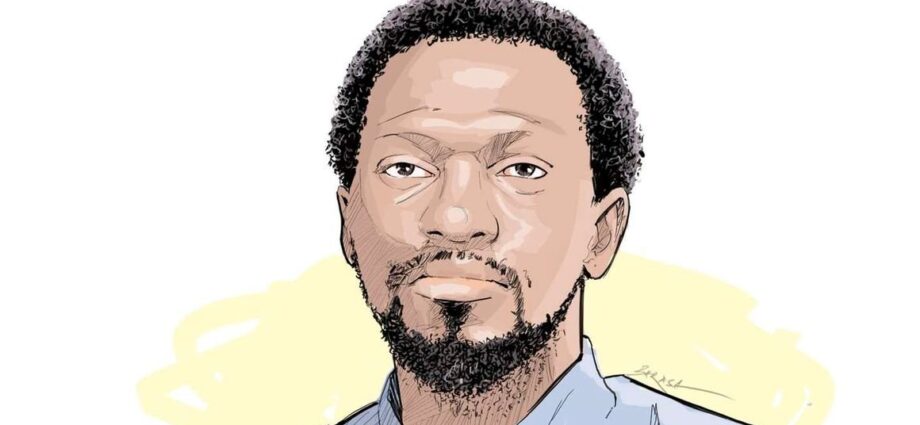Profiles
Flutterwave CEO (nicknamed GB) is torn between damage control and sustaining growth
Monday October 03 2022
If there is one lesson that African unicorns have picked this year, it is the ability of financial technology (fintech) startups to attract huge investments running into billions of dollars from overseas.
A new benchmark was set early this year by Flutterwave, arguably the most successful payments technology startup in Africa, after it raised Sh28.41 billion.
The funding round valued the firm founded in 2016 at Sh340.9 billion, higher than some of the most profitable Nairobi Securities Exchange-listed banks like Equity and KCB.
At the centre of all this success is the startup’s 38-year-old co-founder and CEO Olugbenga Agboola, better known as GB, whom industry insiders say is a larger-than-life personality who has stuck despite loud murmurs that he should quit following a series of scandals.
To the media, however, GB strikes as a reclusive and reserved chief executive who rarely gives interviews. A random online search yields little information on his background, but he has claimed his position as a techie who has a magic wand for Africa’s payments challenges.
He was featured on the Time’s Next 100 2021 list and a year before that he was named on Fortune’s 40 Under 40 list. This year, he was awarded the Tech Investor of Year by Business Insider, just as the current storm was building.
“There are so many problems to solve on the continent. There are so many things to build. I’m excited by entrepreneurs who are willing to take on these crazy problems and try to solve them, across the board,” GB told a McKinsey’s Banking & Securities Practice podcast in April.
“Africa has always been known to leapfrog. We go from nothing to something, consistently—no phones, to mobiles, to the Internet. People skipped browsers; they search for what they want to buy on Instagram.”
Flutterwave has had a sweet year but with a lot of a bitter aftertaste. Just after the successful fundraising early in the year, the firm was rocked by allegations of financial impropriety and sexual harassment against GB.
And even before the dust could settle, the Assets Recovery Agency (ARA) pounced on Flutterwave, accusing it of money laundering and fraud which led to the freezing of over Sh6 billion in Safaricom paybills and 60 bank accounts.
GB has since scrambled to try to set the record straight on the allegations, which accused him of conducts that could send chief executives of most blue-chip companies around the globe parking.
He has termed the accusations as a “media smear and disinformation campaign” against the young company but has fallen short of providing evidence even after promising to do so in many of the press releases sent out to mitigate the fallout.
Born in 1984 in Lagos, Nigeria, the software engineer has been the brain behind Flutterwave’s success. The University of Westminster graduate co-founded the company along with Iyinoluwa Aboyeji.
The Nigerian entrepreneur has had a sterling career having worked at Standard Bank Nigeria and Access Bank besides stints at global payment solutions company PayPal and Google.
Amid mounting allegations of personal misconduct and unethical business practices, he has taken Flutterwave from a little-known startup in Lagos to a financial payment solutions behemoth with a base in San Francisco, United States.
“The way we see the growth is that we are not yet processing even 10 percent of the payment potential in Africa, so it’s still really early days for us. We follow our customers when it comes to our growth, our expansion, and how we move across geographies and sectors,” GB told the McKinsey podcast.
“What we didn’t expect was to become the infrastructure of payments in Africa. There’s no Africa fintech who is not our customer, and that’s very interesting. There is no other infrastructure to pay or get paid across Africa.”
Flutterwave and its CEO have chosen to be suave and deferential as they fight the mounting legal and regulatory challenges to maintain the trust that its wealthy investors and partners have placed on it.
Critics say the decision by GB to tap Oneal Bhambani as chief financial officer and a series of another top hiring from US-based firms was meant to blindside people from the real issues plaguing the company.
Agboola and Flutterwave have denied wrongdoing, but some of the accusers and critics say that whatever has happened this year is the tip of an iceberg.
Clara Wanjiku Odero, who has since moved to Softbank-backed Credrails in April, narrated accounts of bullying and fraud in the company, but Flutterwave came out guns blazing saying that the accusations were not true.
GB has also not adequately addressed claims of insider trading and sexual harassment that were first reported by Nigerian investigative journalist David Hundeyin.
Flutterwave might as well become an African success story, but for now, industry insiders and critics alike are looking for solid responses to the cases facing the company.
Now, the company is torn between damage control and pursuing its meteoric rise on the continent, in the process missing to address serious corporate governance missteps that could send it crumbling.
Maybe, Flutterwave was not ready to handle the amount of success it has seen in the short period.
Share this news
This Years Most Read News Stories

Zanzibar airport operators decry job losses over Dubai deal
Tanzania air operators say over 600 workers are set to lose their jobs after the semi-autonomous government of Zanzibar awarded a Dubai-based company exclusive rights to handle ground services at a refurbished airport.
The Tanzania Air Operators Association (Taoa) said in a statement that the contract awarded to Dnata, which is registered at the London Stock Exchange, was in breach of the law banning any company from having exclusive rights to ground-handling services at major airports.Continue Reading

High Court rejects Transworld’s application
The High Court in Dar es Salaam has struck out an application in which Transworld Aviation, a ground handler at the Abeid Aman Karume International Airport (AAKIA) was seeking permission to sue the Tanzania Civil Aviation Authority (TCAA).Continue Reading

Zanzibar land lease controversy with British Developer
Zanzibar investment lease controversy rumbles on after President Hussein Mwinyi claims the land lease was terminated following a court case which the developer lost Contradictory details come to light.Continue Reading











